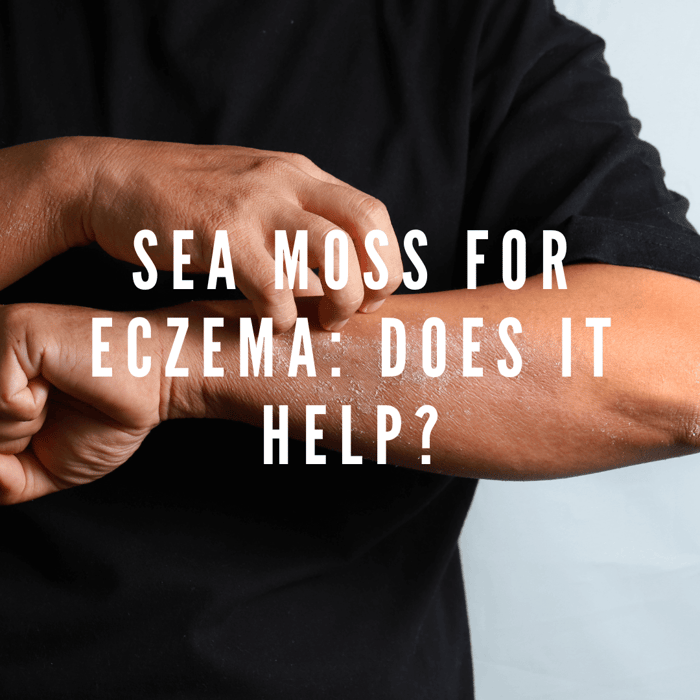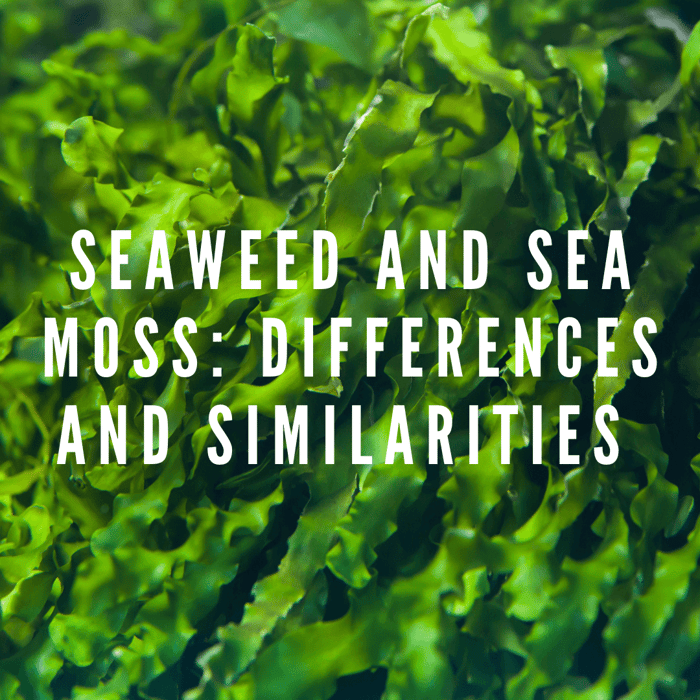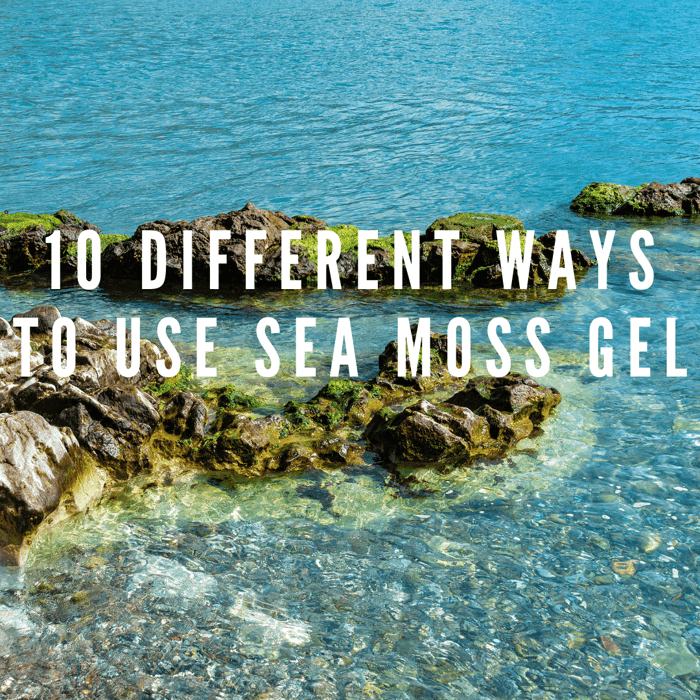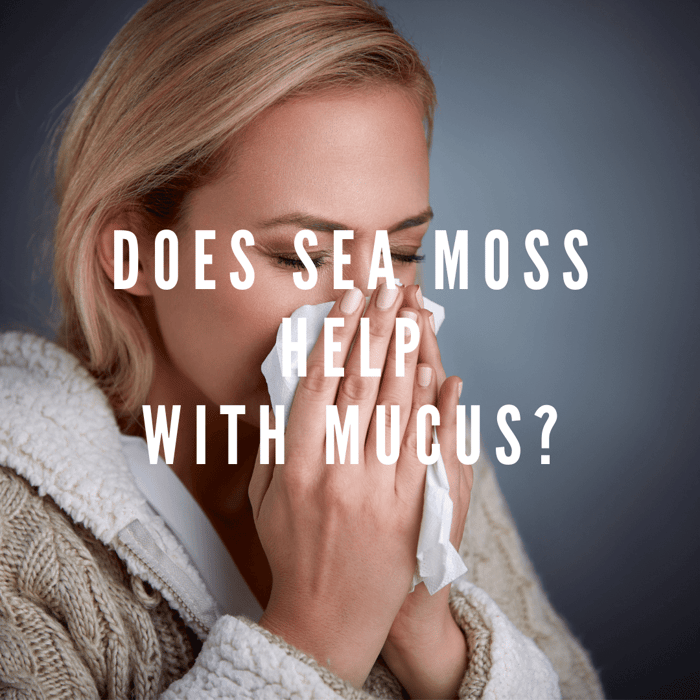At Millie's Moss, we believe in the power of nature to support our health and wellness. In this article, we explore the potential of sea moss in managing eczema, a common skin condition.
Table of Contents
- Introduction
- Understanding Eczema
- Overview of Sea Moss
- Potential Health Benefits of Sea Moss
- Sea Moss and Skin Health
- The Potential Impact of Sea Moss on Eczema
- How to Use Sea Moss for Eczema
- Future Research and Limitations
- Conclusion
Summary of Information
| Topic | Summary |
|---|---|
| Understanding Eczema | Eczema is a common skin condition with various types and triggers. Current treatments have limitations. |
| Overview of Sea Moss | Sea moss is a nutrient-rich algae with a history of use in health and wellness. |
| Potential Health Benefits of Sea Moss | Sea moss may offer general health benefits, including potential benefits for skin health. |
| The Potential Impact of Sea Moss on Eczema | Sea moss may help manage eczema symptoms, though more research is needed. |
| How to Use Sea Moss for Eczema | Sea moss can be incorporated into the diet or applied topically. Precautions should be taken. |
| Future Research and Limitations | Current understanding of sea moss's impact on eczema is limited. Future research is necessary. |
I. Introduction
Eczema is a prevalent skin condition that affects millions of people worldwide. Despite the availability of various treatments, many individuals continue to struggle with managing their symptoms. This has led to a growing interest in exploring alternative remedies, including the use of natural superfoods like sea moss. In this article, we delve into the potential role of sea moss in managing eczema.
II. Understanding Eczema
A. Definition and types of eczema
Eczema, also known as dermatitis, is a group of conditions that cause inflammation of the skin. It comes in several forms, including atopic dermatitis, contact dermatitis, and dyshidrotic eczema, each with its unique triggers and symptoms.
B. Common triggers and symptoms of eczema
Common triggers of eczema include irritants, allergens, stress, and changes in weather. Symptoms typically include redness, itching, and dry, scaly skin. In severe cases, blisters may form and ooze.
C. Current treatments and their limitations
Current treatments for eczema primarily aim to manage symptoms and prevent flare-ups. These include topical corticosteroids, antihistamines, and moisturizers. However, these treatments often come with side effects and may not be effective for everyone, highlighting the need for alternative solutions.
III. Overview of Sea Moss
A. What is sea moss? Historical and cultural context
Sea moss, a type of red algae, is a superfood that has been used for centuries for its nutritional benefits. It was traditionally used in parts of Europe and the Caribbean for its high mineral content and potential health benefits.
B. Nutritional components of sea moss
Sea moss is packed with essential nutrients, including vitamins A, C, E, and K, as well as a range of B vitamins. It's also a good source of iodine, calcium, magnesium, zinc, and more.
C. Popular uses of sea moss in health and wellness
Today, sea moss is popular in the health and wellness community for its potential benefits. It's often consumed in the form of a gel or added to smoothies, soups, and other dishes. It's also used topically for skin health.
IV. Potential Health Benefits of Sea Moss
A. General health benefits of sea moss
Sea moss is known for its rich nutrient profile, which contributes to its wide range of potential health benefits. These include supporting immune function, promoting digestive health, and enhancing energy levels. It's also believed to have anti-inflammatory and antioxidant properties.
B. Existing scientific research supporting these benefits
While more research is needed, some studies suggest that sea moss may have potential health benefits. For instance, a study published in the Journal of Applied Phycology found that sea moss exhibited antioxidant activity, which could help protect the body against damage from free radicals.
V. Sea Moss and Skin Health
A. How sea moss can contribute to skin health
Sea moss's nutrient-rich composition can also contribute to skin health. Its high mineral content can help nourish the skin, while its anti-inflammatory properties can help soothe skin irritation and inflammation.
B. Specific nutrients in sea moss beneficial for skin
Several nutrients in sea moss are particularly beneficial for skin health. These include:
- Vitamin A: Promotes healthy skin cell production and growth.
- Vitamin E: Known for its antioxidant properties, which can help protect the skin from damage.
- Iodine: Helps improve skin's moisture levels.
C. Relevant studies or research supporting these claims
Research on sea moss's benefits for skin health is still limited. However, studies on the individual nutrients found in sea moss, such as vitamins A and E, suggest that they can contribute to skin health.
VI. The Potential Impact of Sea Moss on Eczema
A. How sea moss might help manage eczema symptoms
Given its nutrient profile and anti-inflammatory properties, sea moss might help manage eczema symptoms. By nourishing the skin and reducing inflammation, it could potentially help soothe eczema flare-ups and promote skin healing.
B. Review of any scientific studies or anecdotal evidence
While there are no specific studies on sea moss and eczema, anecdotal evidence suggests that it may help. Many individuals have reported improvements in their eczema symptoms after incorporating sea moss into their diet or skincare routine.
C. Explanation of potential mechanisms (e.g., anti-inflammatory properties)
Sea moss's potential benefits for eczema can be attributed to its anti-inflammatory properties and nutrient content. The anti-inflammatory properties can help reduce skin inflammation, a common symptom of eczema, while its nutrients can help nourish and repair the skin.
VII. How to Use Sea Moss for Eczema
A. Ways to incorporate sea moss in diet for eczema benefits
There are several ways to incorporate sea moss into your diet. You can consume it in the form of a gel, add it to smoothies or soups, or use it as a thickener in dishes. Check out our bundles for a variety of sea moss products.
B. Topical application of sea moss for skin health
Sea moss can also be applied topically for skin health. You can use it as a face mask or add it to your bath. Our wildcrafted organic sea moss gel with manuka honey is a great option for topical application.
C. Precautions and potential side effects
While sea moss is generally safe, it's important to use it responsibly. If you're new to sea moss, start with small amounts and gradually increase your intake. If you're applying it topically, do a patch test first to check for any allergic reactions. Always consult with a healthcare professional before starting any new supplement or skincare product.
VIII. Future Research and Limitations
A. Current limitations in understanding the impact of sea moss on eczema
While there is anecdotal evidence suggesting that sea moss may help manage eczema symptoms, scientific research in this area is currently limited. Therefore, it's important to approach these claims with a critical eye and understand that sea moss may not work for everyone.
B. Suggestions for future research in this area
Given the potential of sea moss in managing eczema, more research is needed to fully understand its effects. Future studies could explore the specific mechanisms through which sea moss affects eczema symptoms and investigate its efficacy compared to other treatments.
C. Importance of medical advice in managing eczema
While exploring alternative remedies like sea moss can be beneficial, it's crucial to seek medical advice when managing eczema. Always consult with a healthcare professional before starting any new treatment, and continue to follow their advice and prescribed treatments.
IX. Conclusion
A. Recap of key points discussed in the essay
In this article, we explored the potential of sea moss in managing eczema. While scientific research is limited, anecdotal evidence suggests that sea moss, with its rich nutrient profile and anti-inflammatory properties, may help manage eczema symptoms.
B. Reiteration of the potential of sea moss in managing eczema
Sea moss offers a promising alternative for individuals struggling with eczema. By incorporating it into your diet or skincare routine, you may be able to harness its potential benefits and find relief from your symptoms.
C. Final thoughts on the importance of exploring various eczema treatment options
Managing eczema can be challenging, but exploring various treatment options, including natural remedies like sea moss, can open up new possibilities. Remember, it's important to consult with a healthcare professional before starting any new treatment.
At Millie's Moss, we're committed to providing high-quality sea moss products to support your health and wellness journey. Explore our collections today!
Frequently Asked Questions
- Can sea moss help with skin problems?
- While scientific research is limited, anecdotal evidence suggests that sea moss, with its rich nutrient profile and anti-inflammatory properties, may help manage various skin problems, including eczema.
- Does sea moss moisturize skin?
- Sea moss is known to help improve skin's moisture levels due to its high iodine content. However, individual results may vary.
- Is seaweed good for eczema?
- Some types of seaweed, including sea moss, may potentially help manage eczema symptoms due to their anti-inflammatory properties and nutrient content. However, more research is needed in this area.
- Does sea moss irritate skin?
- Most people can use sea moss without experiencing irritation. However, if you have sensitive skin or are allergic to sea moss, it may cause irritation. Always do a patch test before applying it to your skin.
- Can you put sea moss on skin?
- Yes, sea moss can be applied topically to the skin. It can be used as a face mask or added to your bath for potential skin health benefits.
 is here! Shop now, pay later in 4 easy installments
is here! Shop now, pay later in 4 easy installments



